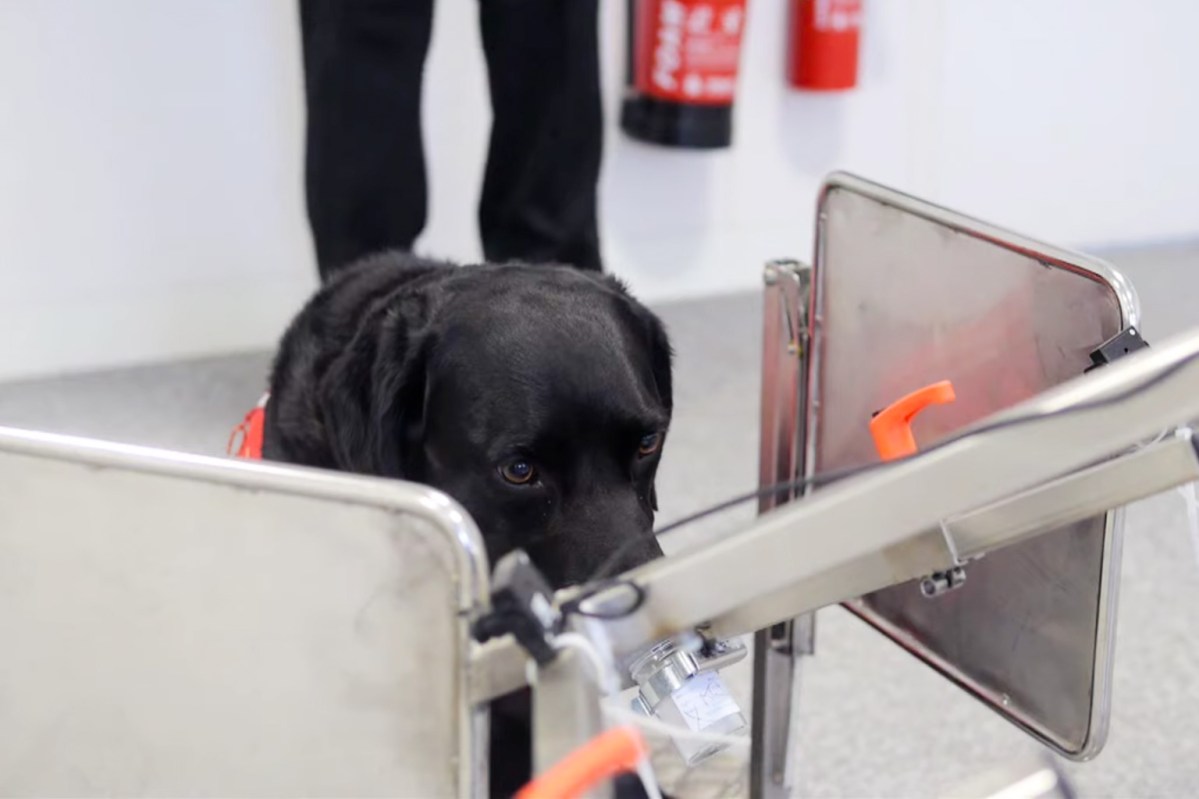No one knows for sure what air travel will look like when the world emerges on the other side of this pandemic. Airports and airlines are already taking extreme precautions to protect the health and safety of travelers worldwide. Some are being forced to wear face masks, undergo full-body disinfection at the airport, and even submit to pre-flight blood testing. Now, it seems the next weapon in the fight against COVID-19 could involve highly trained dogs.
A team of London researchers is working to determine whether bio-detection dogs can sniff out the COVID-19 virus in humans. The group previously collaborated on a successful project to train canines to detect malaria in humans. With a high degree of accuracy, the dogs can hone in on specific odors given off by the virus, even in infected people showing no symptoms. They can also detect changes in body temperature that might indicate a fever. The team used similar methods to train other dogs to diagnose Parkinson’s disease, cancer, infections, and other medical conditions.

It sounds implausible, but consider that we already rely on dogs to detect things like drugs and explosives. At the heart of the team’s research is whether COVID-19 has a distinct smell or, more specifically, changes the way our bodies smell. According to the project’s Indiegogo page:
“Many diseases change our body odor. This has been shown many times in scientifically robust experiments. Recent research on flu viruses, and other respiratory diseases, has shown that these diseases also interact with the human immune system and change human body odor. There is a very good chance that COVID-19 has a distinctive body odor.”
According to Medical Detection Dogs co-founder, Dr. Claire Guest, the screening is non-invasive. “When sniffing people, the dogs will not need to make contact but will sniff the air around a person. The dogs will therefore not be in direct contact with the people screened to prevent the risk of spreading the virus.” If the long-term project is successful, the team is hopeful the dogs could rapidly screen up to 250 people per hour.
“The dogs will not be in direct contact with the people screened to prevent the risk of spreading the virus.”
Dr. Guest is also quick to point out that the training process will not endanger the dogs. “The samples that the dogs will be trained on at the center will be deactivated (dead) virus and therefore of no risk to the dogs or handlers.”
The group launched an ambitious Indiegogo campaign to solicit donations for the research project. If the campaign is fully funded and the training is successful, the dog teams could be deployed on a global scale. This could be especially useful toward the end of the epidemic to help stop a re-emergence of the virus after it’s under control.


